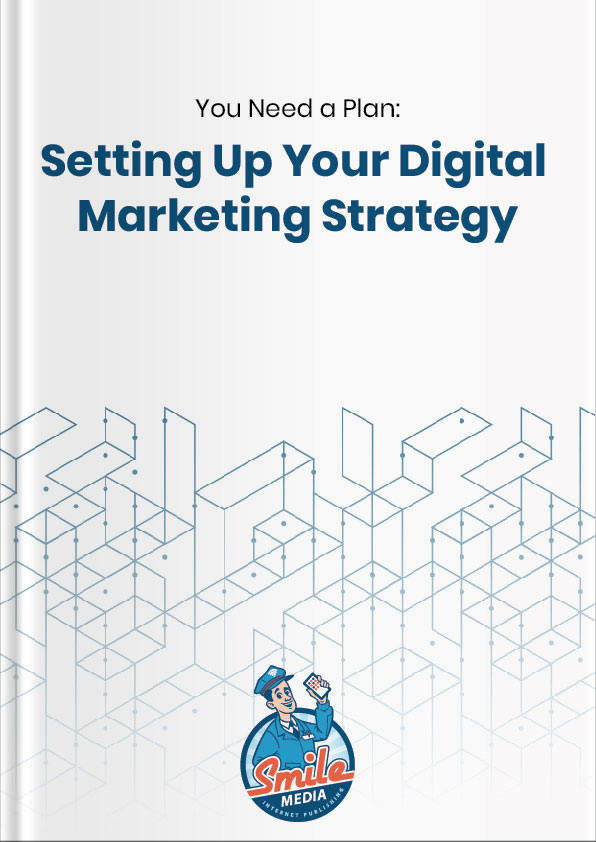If you’ve been following Google updates (like any successful business should) you may already be aware that Google AI is drastically changing the way search works. But Google RankBrain has been around for a couple of years now, so it’s not like the presence of AI is breaking news.
As marketers, business owners, and content creators, we’re used to being judged about the content we produce, how we present it, where we publish it, and the intentions behind our actions. And, we know that Google’s Algorithm is constantly changing and that many SEO practices that used to be acceptable are no longer possible to employ without violating Google’s policies.
For example, in May of 2017, Google warned us that manipulative article marketing/link-building activities would result in serious penalties. There’s a real possibility that Google could update related issues in their next algorithm update, so don’t say you weren’t warned.
So, how is Google AI judging your SEO strategy?
Let us count the ways:
1. Quality
Is the content you’re producing high-quality? Google AI knows if you’ve been keyword stuffing or fluffing your way to hit word counts. If you’re not being genuine in your content creation, Google AI may be able to sniff you out.
And we’re not just talking about words, here. Google AI is judging your content quality, as well as the quality and aesthetic appeal of your images. Think robots don’t know the difference between a blurry photo and a clear one? A dark photo and a bright one? Think again.
2. Relevance
Even if your content is high-quality, engaging, and full of aesthetically pleasing images, Google AI will still be looking to answer one question: Does your content match user intent?
We’re being judged not just on the quality of content we create, but the relevance of that content to our targeted audiences. It makes sense since we're supposed to be creating content for people – not robots. And yet, the robots are still judging us and keeping us in line
3. Usefulness
Is your content useful/educational? If not, then why are you creating it? Google wants to give searchers the best possible answers to their questions. If your content doesn’t answer questions that people are searching for, then how is it useful?
Now, chances are, will so many people searching for so many different things, your content is bound to be useful to someone. However, it goes without saying that, the more useful your content is to more people, the higher it will rank in the search engines.
4. User Experience
Are you providing a quality user experience for your audience? It is no longer enough just to supply answers to questions. Your content must be displayed in a way that makes it easy for users to find it and digest it. And, they should also want to share it with others.
The better the user experience of your audience, the more likely they are to share their experience with others. By providing high-quality, relevant, and useful content on a consistent basis, you are laying the groundwork for creating a powerful customer experience.
Take it one step further and design your content in an aesthetically pleasing and intuitive way, and your customers will not only want to keep coming back for more, but they’ll also want to bring their friends with them.
Writing for Machines and People
As Google AI continues to learn how to think more like online searchers, the line between human intelligence and artificial intelligence is becoming a bit blurry. Fortunately, best practices for SEO have been moving in the same direction, so we are encouraged to write for Google Bots and people at the same time.
Since they’re starting to think more and more alike, this should make writing for them easier, right? Well, sort of. The thing is, AI is always changing and evolving based on user needs. So, like our habits and needs as searchers, AI’s formulas are mirroring our changing minds, attitudes and actions.
So, in both cases, we must be able to predict human behavior. If this were easy, then no one would be researching the topic and writing about it. And so, the search goes on for the best ways to appeal to both Google AI, as well as human beings.
Optimizing Content for Google AI
Although there’s no simple formula for optimizing your content for Google AI, we can give you a few tips to get you started:
1. Featured Snippets
In order to be relevant and useful, the meta descriptions and title tags associated with your content need to be spot on. Think simple and direct. If your content answers a specific question, you may want to title your content with a simple question.
For example, if you’re writing about Google AI and how it works, you may want to title your article, “What is Google AI and How Does It Work?” The simpler and more relevant your titles and descriptions are, the more likely they are to show up as featured snippets.
If you’re going to tackle a “what is” or “how to” question, though, be sure your answer is high-quality. Google AI can tell the difference between a well-written article or carefully edited video, so you’ll have to put in the effort to get the results you want.
2. SEO for RankBrain
Since the new ranking factor was introduced back in 2015, marketers have been plagued with trying to figure out how it works and how to optimize for it. SEO for RankBrain is tricky, but not entirely impossible, though some experts will say that. It really comes down to what SEO experts have been saying all along, and what we’ve already outlined above.
Your content needs to be high-quality, relevant, useful, and engaging. There’s more to it than that, of course, but if you stick to these guidelines, you may find that optimizing for RankBrain is happening without much (additional) effort at all.
3. Mobile-First Design
When it comes to delivering a great user experience, mobile is the way to go. If your website design is targeted at desktop users first and foremost, you’ve got it backwards. Although desktops are still one of the devices searchers use to access the internet, mobile usage has surpassed desktop usage.
In fact, Google is looking at the mobile version of your site, first. The good news is that, if you don’t have a mobile version, it can still crawl your site (for now), however, you aren’t likely to rank as high if it isn’t designed to be mobile-friendly. This isn’t breaking news, but we thought it worth a friendly reminder.
4. SEO for Voice Search
Another thing to consider when optimizing your content (for mobile users especially), is the increase is use of voice search. Users are no longer typing in long queries into Google Search. Instead, they’re speaking their questions into Google Voice Search, which is changing the keyword phrases that are used.
Instead of typing “coffee shop Boston,” a user might say, “Okay Google, show me where there is a coffee shop in Boston nearby.” Understanding how people speak vs. queries they plug into the Google Search bar is important when optimizing for voice search.
Catering to the user’s preferences and behaviors is another way to deliver an optimal user experience, which leads to repeat visits and increased conversions. Yes, please!
5. Track and Analyze Data
In the era of big data, it’s hard to keep up if you’re not keeping track. Whatever techniques and practices you follow for SEO, be sure to track and analyze your data over time. By analyzing customer behaviors and preferences, you can get better at delivering the most useful, relevant, and high-quality content to your users, resulting in the best possible user experience.
If you aren’t keeping track or measuring your results, how can you possibly know where there’s room for improvement? And if you don’t keep track, you can bet on Google AI keeping track for you, and they’ll be judging your weak spots. If you can’t get one step ahead of Google, you may as well try to keep up.
Want to Show Google AI Who’s Boss?
Do you need help shaping up your SEO strategy to show Google AI you know what you’re doing? Working with a Boston marketing agency, like Smile MEDIA, can help. Contact one of our digital marketing specialists to get started today.








